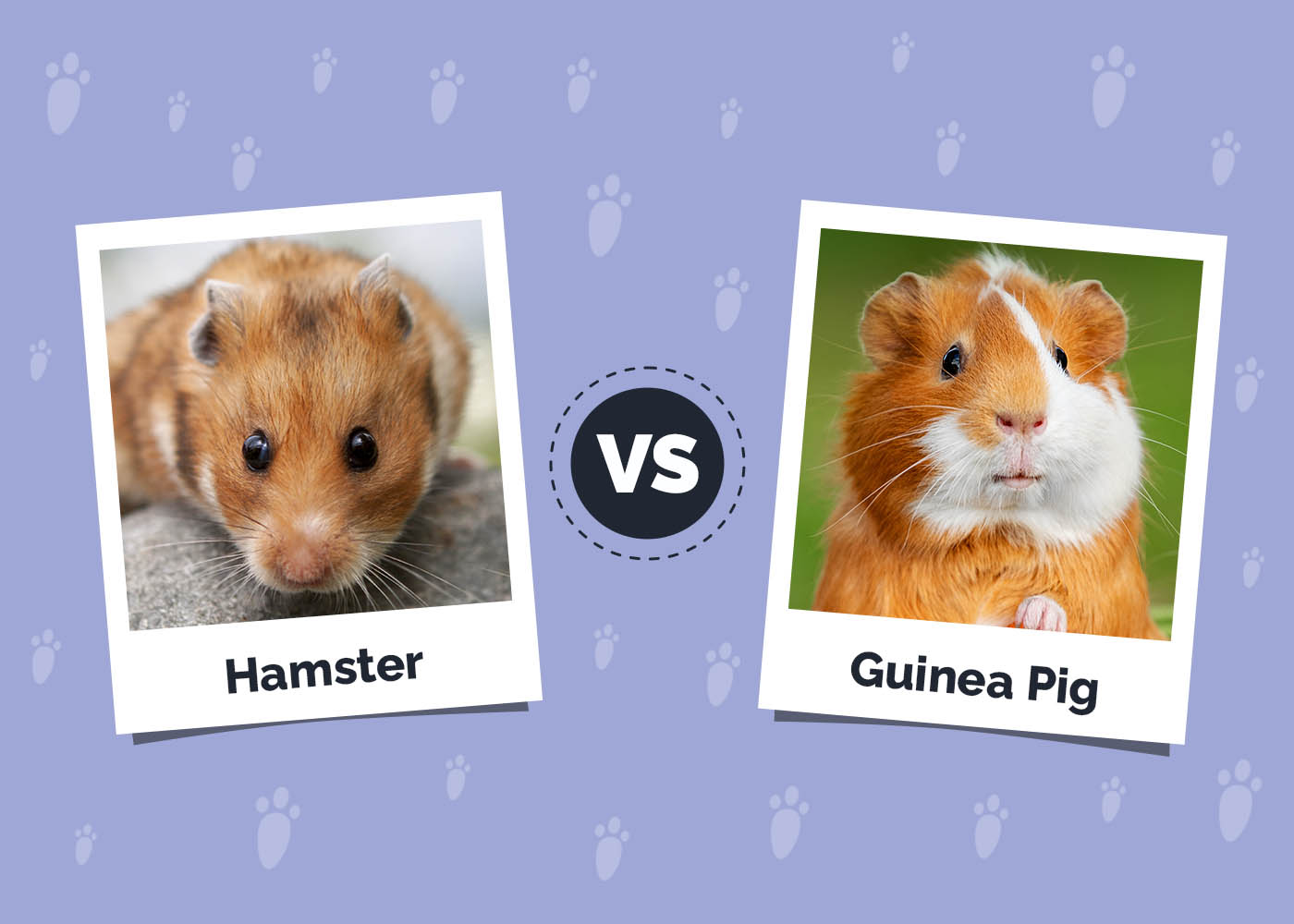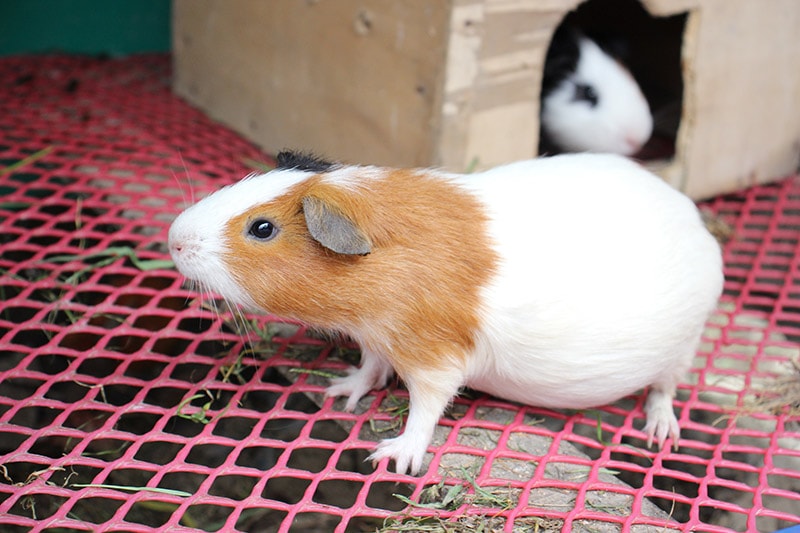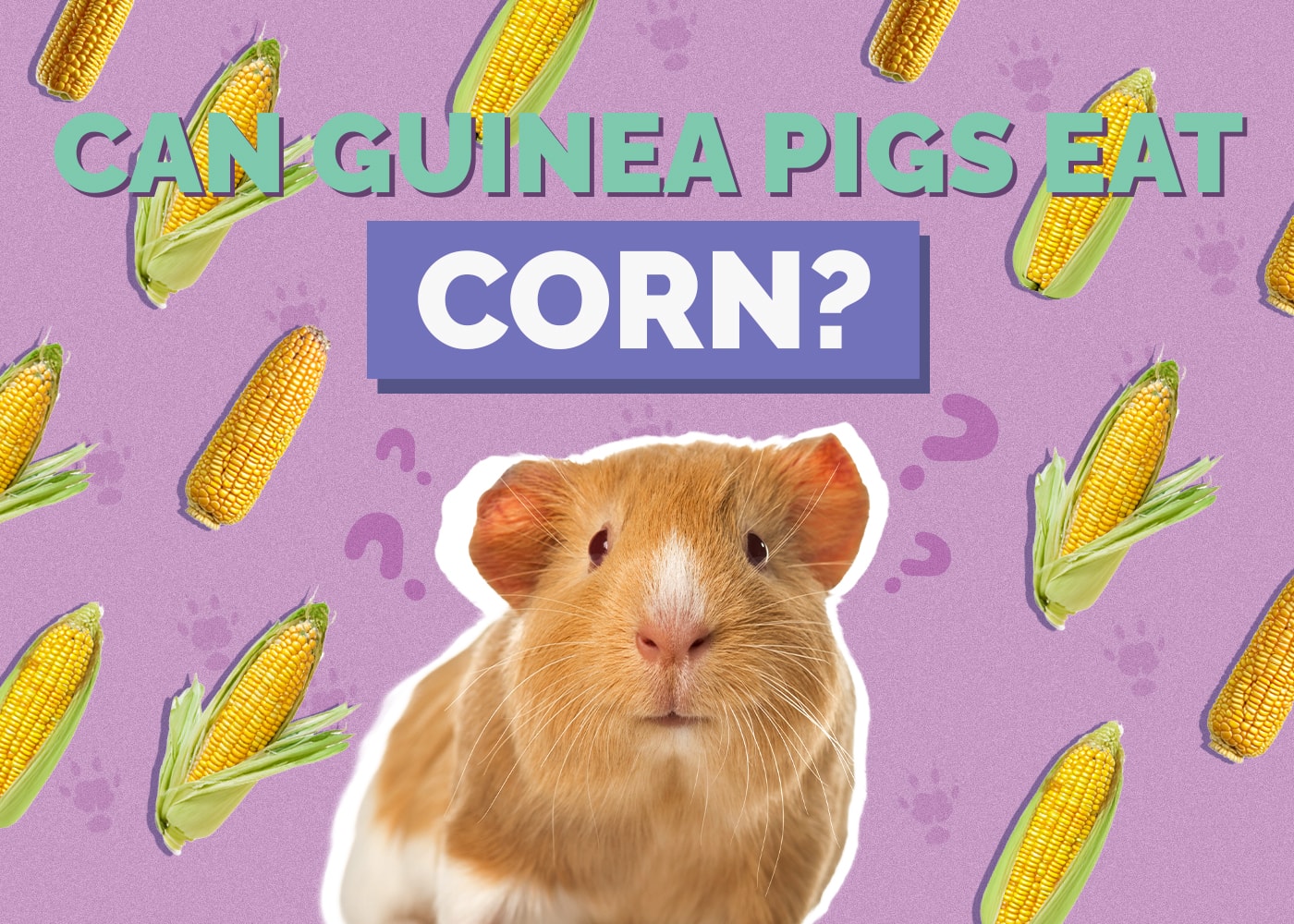Can Guinea Pigs Eat Cheese? Vet-Approved Nutritional Safety Guide

Updated on

Guinea pigs are adorable little creatures that bring joy and companionship to many households. As responsible pet owners, it’s essential to provide our furry friends with a nutritious and balanced diet.
While guinea pigs thrive on a diet primarily composed of hay, fresh vegetables, and pellets, it’s natural to wonder if they can enjoy some of the foods that we enjoy ourselves. One such food that often comes to mind is cheese. Can guinea pigs eat cheese?
The short answer is NO, guinea pigs should not eat cheese. As herbivores, a guinea pig’s digestive system is built for plants. This can make it difficult for guinea pigs to digest cheese and other dairy-based products.
In this article, we will explore whether guinea pigs can eat cheese, the potential risks associated with it, and provide you with alternative options to keep your guinea pig healthy and happy.
Why Should I Not Feed Cheese to My Guinea Pig?
Although cheese is a delicious treat for humans, it should not be considered a suitable food for guinea pigs. It is important to note that humans and guinea pigs have different nutritional requirements, so cheese and other dairy-based foods may not provide the same benefit for guinea pigs as compared to us humans.
There are several reasons why cheese should be avoided in their diet. Firstly, guinea pigs are herbivores and have specific dietary requirements that focus on high-fiber foods. Cheese is not a natural part of their diet and lacks the necessary nutrients to support their well-being.
In addition, cheese is also high in fat and cholesterol. This can lead to obesity and other health issues in guinea pigs. Excessive fat intake can also strain their digestive system, causing diarrhea and discomfort.
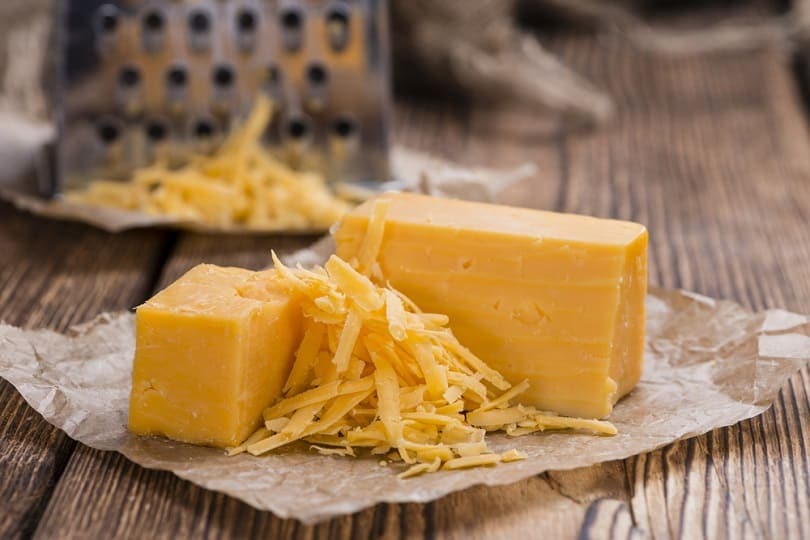
Is Cheese Harmful for My Guinea Pig?
Cheese is harmful to guinea pigs as their digestive systems are not built to digest dairy-based foods. The potential tolerance of specific cheeses and dairy products in guinea pigs varies. Generally speaking, the risk isn’t worth it.
Besides the potential health risks associated with the high fat content, cheese also contains lactose. Guinea pigs lack the enzyme lactase, which is responsible for breaking down lactose. As a result, their bodies cannot digest lactose properly, leading to digestive upset such as gas, bloating, and diarrhea.
These issues can be uncomfortable for your guinea pig and may even require veterinary intervention if they persist.
Will Guinea Pigs Eat Cheese If Presented?
While guinea pigs may show curiosity towards new foods, including cheese, their preference for cheese is unlikely. Their dietary habits are primarily focused on consuming plant-based foods, and cheese does not align with their natural preferences.
Guinea pigs are also naturally neophobic, which means they tend to fear new objects, experiences, or environments. They are particularly neophobic towards unfamiliar foods and therefore, might react to cheese with an element of fear rather than curiosity.
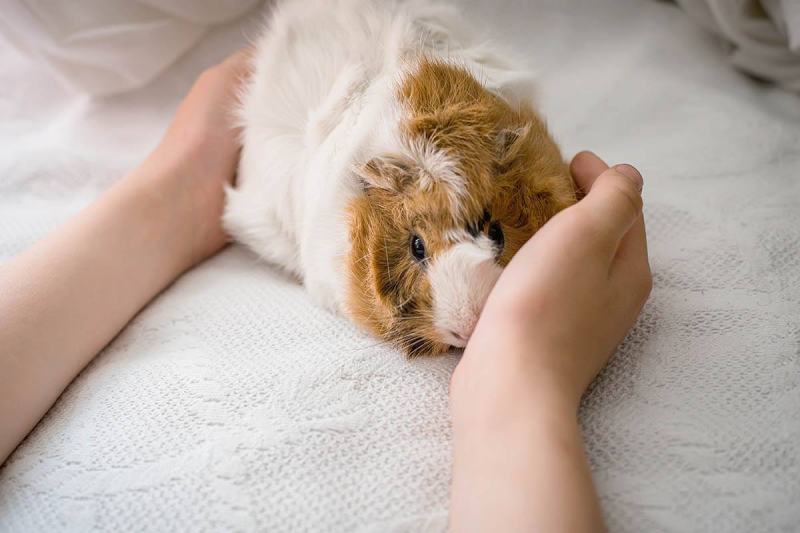
My Guinea Pig Ate Cheese, What Should I Do?
If your guinea pig accidentally consumes a small amount of cheese, it is likely harmless and not a cause for alarm. However, it is still crucial to monitor your pet closely for any signs of digestive distress or discomfort. It is best to seek veterinary care if they’ve consumed cheese, as gut stasis is a serious ailment for guinea pigs.
As a responsible pet owner, be vigilant and keep an eye out for changes in behavior, appetite, and stool consistency. If your guinea pig experiences issues such as diarrhea, bloating, or decreased appetite, it’s advisable to consult a veterinarian immediately to prevent dehydration. Your veterinarian can provide quick guidance and appropriate treatment if necessary.
What Are Better Alternatives to Cheese?
Fortunately, there are several safe and healthy alternatives to cheese that you can offer to your guinea pig. Vegetables such as bell peppers, cucumbers, zucchini, and leafy greens like kale and romaine lettuce are excellent choices.
These foods provide essential vitamins and minerals that are beneficial for your guinea pig’s overall health. Additionally, guinea pigs enjoy fruits like apples, strawberries, and blueberries, but these should be offered in moderation due to their sugar content.
While these foods are considered safe and healthy for guinea pigs, always remember to introduce new foods gradually and in small quantities to prevent digestive issues.
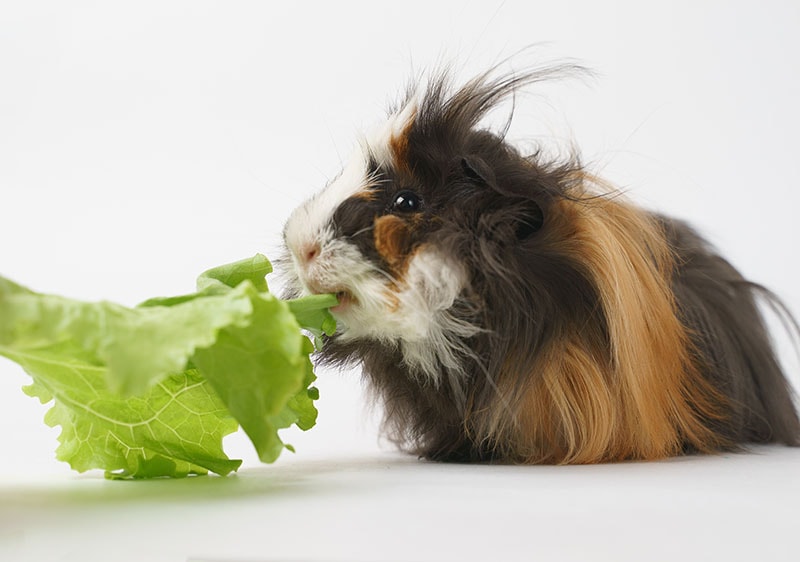
Aside from Cheese, What Are Other Foods That Should Be Avoided?
As responsible pet owners, we want to provide what’s best for our guinea pigs. In addition, we also want to be aware of the other foods that are considered harmful and should be avoided for guinea pigs. Aside from cheese, here are other foods that owners should avoid feeding their guinea pigs:
Dairy-Based Foods
Apart from cheese, other dairy products such as milk, yogurt, and ice cream should be avoided. Guinea pigs cannot digest lactose, and consuming dairy products can lead to digestive issues and discomfort.
Sugary and Processed Foods
Foods that are high in sugar, such as candies, cookies, and processed snacks, should never be given to guinea pigs. Their digestive systems are not designed to handle high levels of sugar, and it can lead to obesity, dental problems, and other health complications.
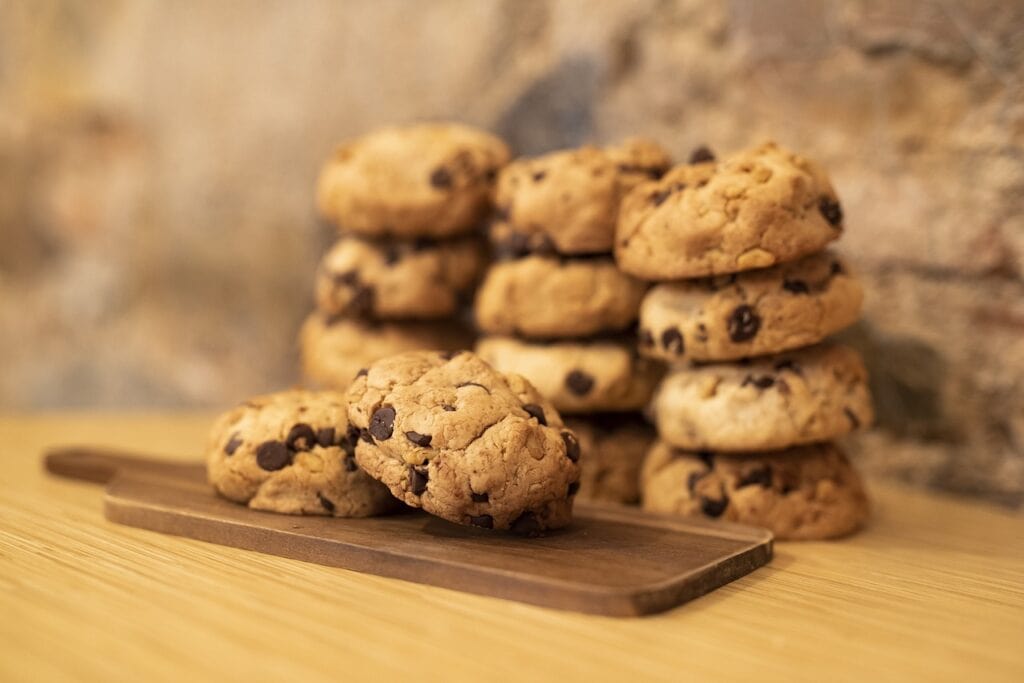
Alcohol
Alcohol, even in the smallest amounts, can be toxic to guinea pigs. Guinea pigs should never be offered alcohol or beverages that contain alcohol. Please note that alcohol is a natural byproduct of raw dough’s fermentation process, therefore, you should not offer your guinea pig raw dough.
Chocolate
Chocolate contains theobromine, a compound that is toxic to guinea pigs and can cause severe health problems or even be fatal. It’s essential to keep all chocolate products away from your guinea pig’s reach.
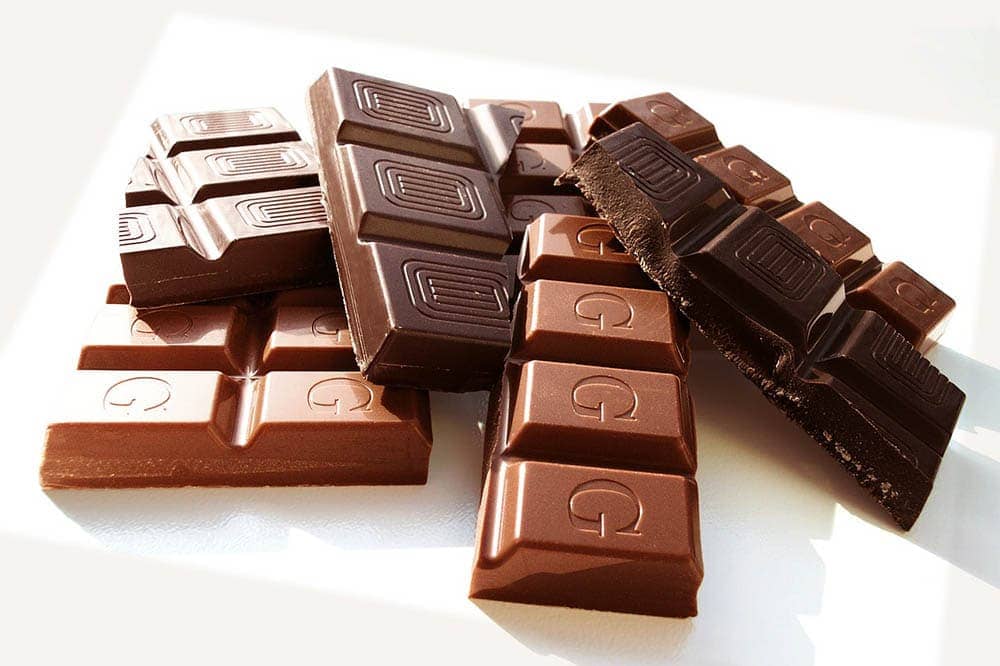
Meat
Again, guinea pigs are herbivores and have digestive systems built to process plants and other plant-based foods. As their gastrointestinal tract is not equipped to properly break down and process meat, they may gain little to no benefit from eating meat and meat can even cause digestive issues and illness.
Final Thoughts
It is not recommended to feed cheese to your guinea pig. Cheese lacks the necessary nutrients and can cause digestive problems due to its high fat and lactose content. While a small accidental ingestion may not cause immediate harm, it’s essential to monitor your guinea pig for any signs of discomfort or digestive upset.
Instead of cheese, there are many other tasty and healthy alternatives that your guinea pig can enjoy snacking on. Focus on providing a balanced diet consisting of hay, fresh vegetables, and pellets to meet your guinea pig’s nutritional needs!
Featured Image Credit: Alexander Maasch, Unsplash


